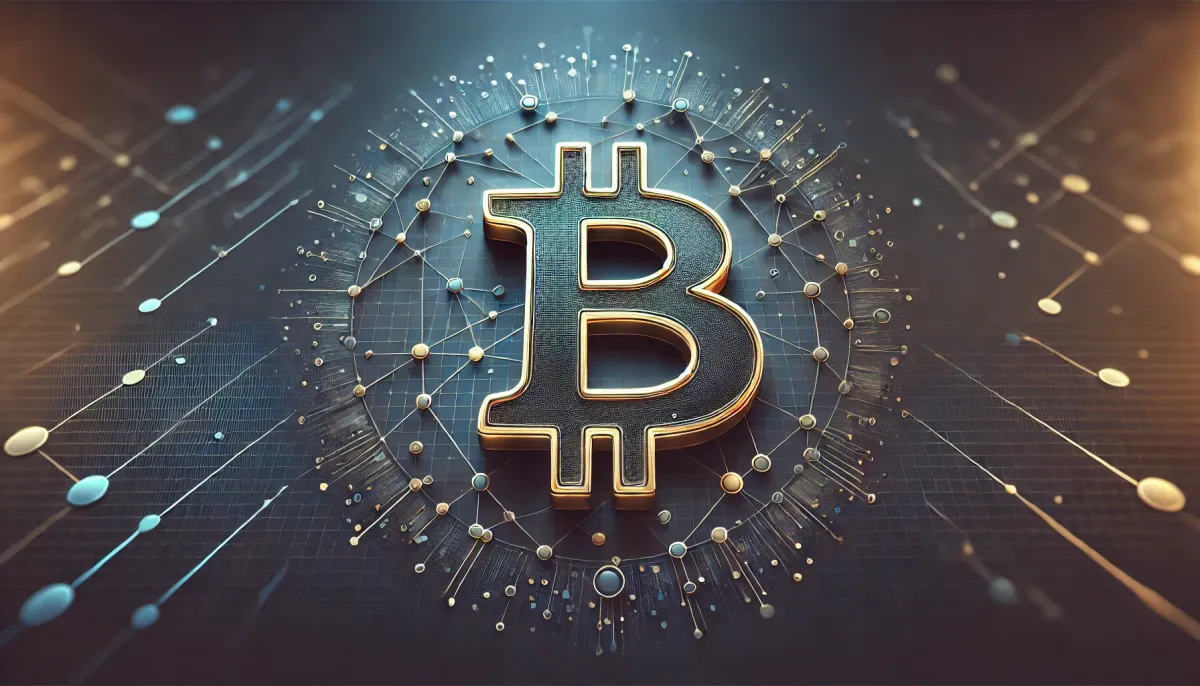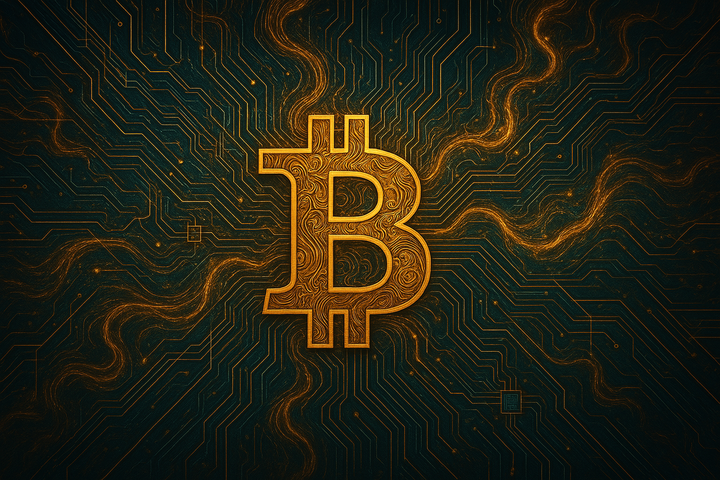Bitcoin as a U.S. Strategic Reserve: Navigating Economic Stability and Inflation
The November 8, 2024 episode of The Last Trade podcast features Lawrence Lepard and David Foley discussing the current economic and fiscal issues facing the U.S. and the world, with a particular focus on Bitcoin as a potential solution to systemic challenges.

- My 'briefing notes' summarize the content of podcast episodes; they do not reflect my own views.
- They contain (1) a summary of podcast content, (2) potential information gaps, and (3) some speculative views on wider implications.
- Pay attention to broadcast dates (I often summarize older episodes)
- Some episodes I summarize may be sponsored: don't trust, verify, if the information you are looking for is to be used for decision-making.
Summary
The November 8, 2024 episode of The Last Trade podcast features Lawrence Lepard and David Foley discussing Bitcoin's potential role as a U.S. strategic reserve asset, with a focus on mitigating inflation, stabilizing the national economy, and fostering resilience against global financial shifts. They cover key challenges, including institutional resistance and volatility, as well as the transformative implications of Bitcoin adoption on both domestic fiscal policy and international financial dynamics.
Take-Home Messages
- Strategic Reserve Potential: Bitcoin as a reserve asset could stabilize the U.S. economy against inflation and fiscal risks.
- Institutional Integration: Regulatory updates are essential for allowing secure Bitcoin investment by pension funds and institutions.
- Geopolitical Influence: A U.S. Bitcoin reserve might drive competitive adoption by other nations, reshaping global financial strategy.
- Economic Resilience through Sound Money: Both Bitcoin and gold are considered viable safeguards against fiat currency devaluation.
- Volatility and Policy Hurdles: Bitcoin’s potential as a reserve depends on mitigating volatility and regulatory resistance.
Overview
In this November 8, 2024 episode of The Last Trade podcast, Larry Lepard and David Foley explore Bitcoin’s potential as a stabilizing asset within the U.S. reserve system, particularly in light of inflation, economic disparity, and political changes. They propose that Bitcoin could serve as a hedge against inflation, protecting the economy from fiat devaluation while offering resilience amid geopolitical uncertainties. Economic disparities due to inflation and systemic risks highlight Bitcoin’s role as a countermeasure within the existing financial structure.
Lepard and Foley suggest that a U.S. Bitcoin reserve could set a global precedent, leading other countries to follow suit and creating a new landscape for international financial competition. Established financial institutions, notably the Federal Reserve and U.S. Treasury, pose significant regulatory and ideological barriers to Bitcoin adoption. Regulatory adjustments are needed to allow broader institutional access and support for Bitcoin as a legitimate reserve asset.
Additionally, Lepard and Foley highlight the potential of Bitcoin to attract institutional interest, including from pension funds, through emerging financial products like ETFs. These options provide a regulated entry point, addressing some institutional concerns. Despite Bitcoin’s volatility, its value may stabilize as adoption grows across governments and financial institutions.
Stakeholder Perspectives
- Federal Reserve and U.S. Treasury: Likely to resist Bitcoin adoption as a reserve asset due to concerns over the stability of the dollar and potential disruptions to the financial system.
- Institutional Investors: Show increasing interest in Bitcoin as a hedge against inflation but face challenges related to volatility and regulatory restrictions.
- U.S. Government Policymakers: Weigh the potential economic resilience Bitcoin offers against the risks it poses to traditional fiscal and monetary frameworks.
- Public and Media: Alternative media outlets are shaping a more favorable public perception of Bitcoin, though misinformation remains a barrier to wider acceptance.
- International Governments: Nations observing U.S. Bitcoin adoption may feel compelled to accumulate Bitcoin, sparking competitive dynamics in global financial reserves.
Implications
Bitcoin's role as a reserve asset could have substantial implications for economic policy, financial markets, and geopolitical dynamics. Adopting Bitcoin in U.S. reserves would elevate its status globally, encouraging international competition for Bitcoin accumulation, especially among nations concerned with long-term financial resilience. This could strengthen Bitcoin’s appeal as an inflation-resistant asset while driving other nations to consider similar strategies.
For institutional investors, Bitcoin’s integration would represent a shift in asset allocation strategies, offering an alternative to bonds and fiat-denominated investments that struggle under inflationary pressures. The U.S. may need to adjust regulatory frameworks to accommodate Bitcoin’s use in national finance, creating opportunities and challenges for policymakers in balancing Bitcoin with existing fiat systems.
Future Outlook
Bitcoin’s integration as a national reserve asset could mark a transformative shift for U.S. fiscal policy and the global economy. Over the next decade, broader adoption could stabilize Bitcoin’s value, making it more attractive to both institutional and government entities.
Globally, U.S. adoption of Bitcoin may spark a chain reaction among other nations, intensifying the drive for a digital, decentralized alternative to traditional reserve currencies. This future may also see Bitcoin and gold emerge as primary inflation-resistant assets, with regulatory innovations enabling broader institutional access. Such developments could fundamentally alter asset class dynamics, moving Bitcoin to the forefront of sound money strategies.
Information Gaps
- Geopolitical Impact of Bitcoin Reserves: How would U.S. adoption of a Bitcoin reserve influence other nations' reserve strategies and global alliances?
- Regulatory Barriers for Institutional Bitcoin Adoption: What specific regulatory adjustments would enable secure Bitcoin investments in pension funds?
- Stabilization Mechanisms for Bitcoin: What measures could be introduced to reduce Bitcoin’s volatility for its use as a reserve asset?
- Investor Behavior in Bond-to-Bitcoin Shifts: How would investor behavior change if Bitcoin replaces bonds as an alternative for wealth preservation?
- Media’s Role in Public Bitcoin Sentiment: How does media portrayal influence public perception and acceptance of Bitcoin as a stable national asset?
Broader Implications
Institutional and Public Trust in Bitcoin
With rising interest from institutional investors, Bitcoin’s reputation as a legitimate, secure asset could improve substantially. Regulatory advancements could pave the way for pension funds and other major institutions to hold Bitcoin, amplifying its appeal as a reliable hedge against inflation. As trust builds, both public sentiment and investor confidence in Bitcoin may solidify, setting the stage for it to play a foundational role in diversified investment portfolios.
Global Financial Competition
The U.S. potentially adopting Bitcoin could spur other nations to accumulate it as part of their reserves, intensifying global financial competition. This development would shift the power dynamics of reserve assets, reducing reliance on fiat-based assets and revaluing monetary power across countries. As competition grows, nations that quickly adopt Bitcoin could gain strategic advantages, strengthening their currency stability against inflationary pressures.
Investor Behavior Shifts
Bitcoin’s potential role as a national reserve asset could redefine traditional asset allocation, leading investors to favor Bitcoin over bonds and fiat-backed assets. As inflation and low bond yields drive a search for sound money alternatives, Bitcoin could increasingly attract institutional wealth. This shift would reduce the dominance of fiat assets in investment portfolios, contributing to a paradigm shift in wealth preservation and growth strategies.
Potential for Bitcoin as a Stabilizing Force in Geopolitics
Bitcoin’s inclusion in national reserves could serve as a stabilizing force by offering an apolitical, neutral asset accessible across borders. By reducing dependence on any single national currency, Bitcoin might help mitigate geopolitical tensions tied to monetary policy. Its neutrality could make it a preferred reserve asset, especially among nations seeking financial independence from traditional global powers.



Comments ()